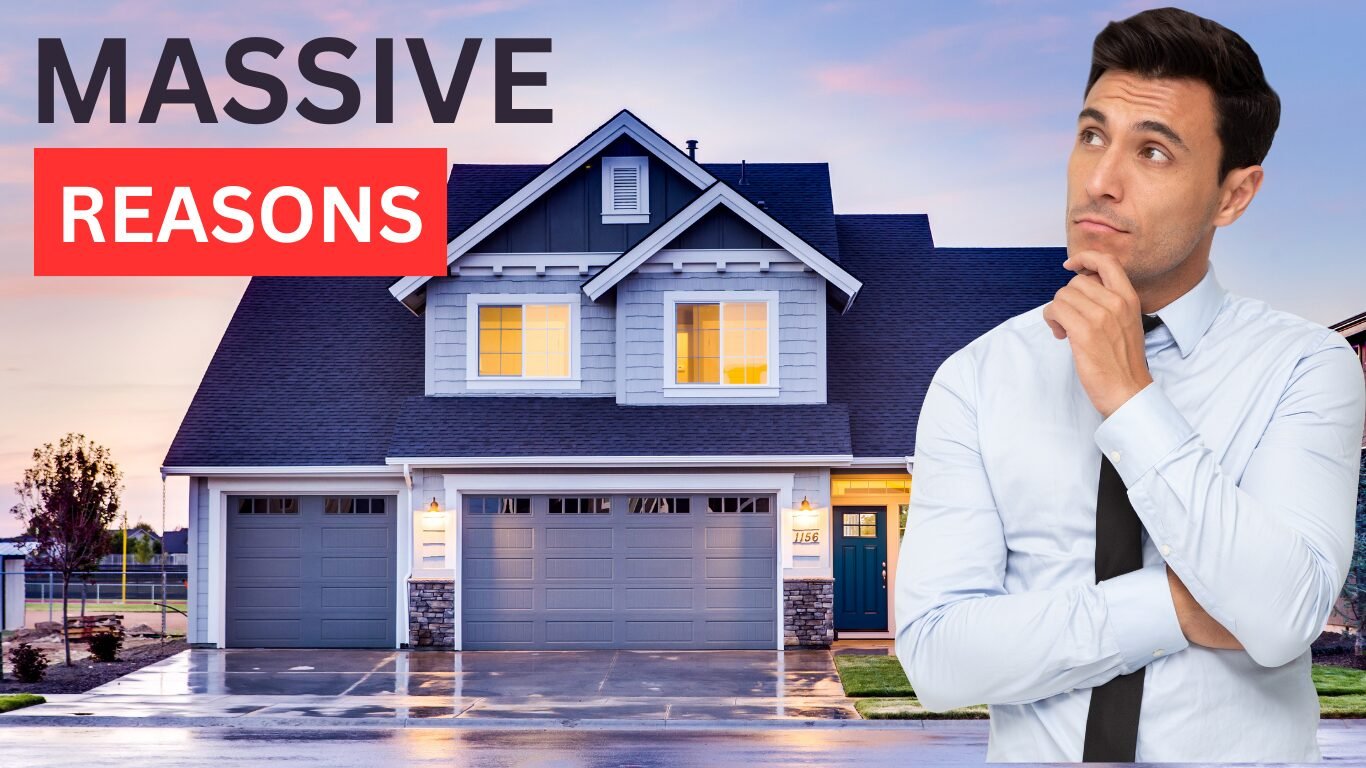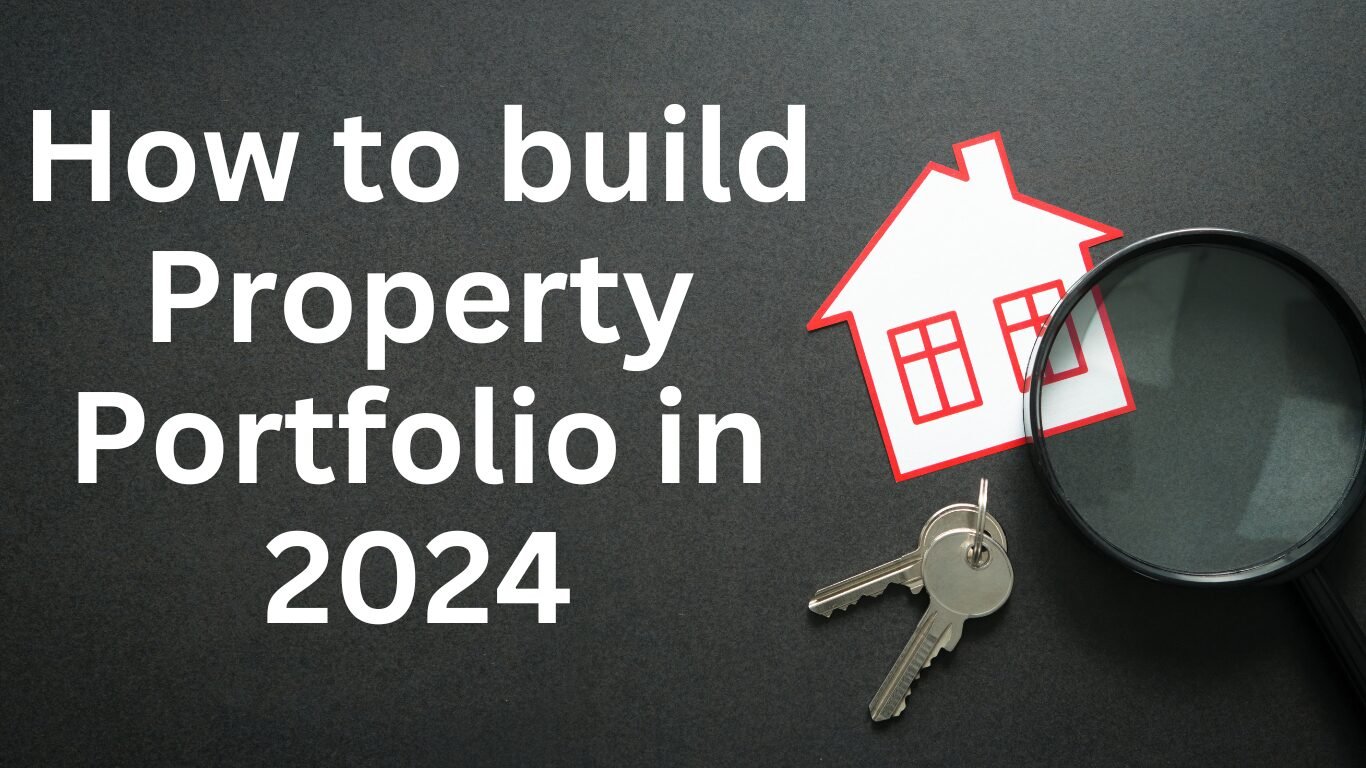Even though I didn’t think it could actually be possible, a new survey found that 90% of millennial home buyers have regrets about their first home purchase. Unlike previous years, these regrets will only continue to happen, especially with the housing market facing an affordability crisis, an inventory shortage, and record-high mortgage rates that make everybody wonder if buying a house is even worth it in 2024.
That’s why we really got to discuss exactly what’s happening, why so many home buyers now regret their home purchase, what you could do to make sure you don’t lose money, and then, finally, the five most common home buying mistakes that almost everybody makes that you could easily avoid. So far, year over year, national housing prices are up 5%, and active listings have barely risen from 616 to 665,000 units, which, for context, is still just one-third of the number of homes that were available back in 2016.
This is creating a very challenging market for both buyers and sellers because, one, no seller wants to move and give up their existing mortgage interest rates, leading to low inventory. Two, the average buyer now needs to make $115,000 a year to afford the typical home. It has become like this chicken or egg scenario, where prices will come down with interest rates being low enough to incentivize sellers to sell.
Still, low interest rates could also spur more demand, causing prices to go even higher. This is why a whopping 83% of people surveyed said that now is a bad time to buy a house, and 60% said that it’s a good time to sell a home. Even worse, 75% of people believe that the economy is on the wrong track, which is the highest amount reported since 2021. Just to put that into perspective, home buying sentiment has been this low since 2012, when the real estate market was barely crawling out of the Great Recession.
This is only worsened by the fact that 81% of workers believe their current wage needs to be kept up with the rising cost of living. Plus, in today’s market, to a certain degree, sacrifices need to be made, especially when demand is high and inventory is low. Like, take a look at these statistics. 39% said that they expect to pay a higher interest rate than they’d like.
36% are prepared to make multiple offers. 30% plan to max out their budget and 29% are ready to pay more than a home’s asking price. With all of this weighing down on the market, why does it seem like almost every buyer has regrets about purchasing a home? And most importantly, what could you do about this to make sure you don’t fall victim to the same mistakes?
6 Reasons why not to buy a house
The first reasons to not buy a house is too much Maintenance
Well, the first home-buying regret, according to 33% of respondents, was that my home requires too much maintenance. Like last year, only 25% of homeowners said that they regretted the overwhelming cost of maintenance. Although recently, it’s not just in your imagination. Home repairs are costing a lot more money.
In terms of specifics, from the third quarter of 2022 to the third quarter of 23, average home maintenance increased by $400, now coming in at $6,548 a year. Why is this happening? Well, consider that labor costs, materials, and inflation are still driving up the price of everything. And that means repairing your home is going to be more expensive than it once was.
Anytime that you go and buy a property, your payment does not stop with just the mortgage. In fact, there’s a saying out there that goes something like rent is the most you’re going to pay every month, and a mortgage is the least you’re going to pay every month. And that is very true. When you go and purchase a property, you are fully responsible for paying the property taxes, insurance, city assessments, repairs, maintenance, and the strong likelihood that something will break the moment it goes out of warranty.
Not to mention, everything in a property has a lifespan until it eventually needs to be repaired or replaced. For example, roofs generally last anywhere from 15 to 25 years. Water heaters last 10 to 15 years. AC units could last 12 to 15 years. Garbage disposals break every few weeks. And when you begin to average those costs throughout your home ownership, you’ll start to realize that it quickly begins to add up.
That’s why if you want to prevent any financial surprises, number one, make sure you get a comprehensive inspection report. Knowing what equipment is near the end of its lifespan and what’s likely going to need to be replaced pretty soon is going to help you better budget for those things when they do eventually come up.
And two, unless you go and buy a brand new construction, assume that you’re going to spend anywhere from five to $600 a month in repairs and maintenance or 1% of the property’s value every single year for just things that come up. This may seem like a lot, but as a homeowner, a lot of these one-time costs begin to add up.
The second reason don t buy a home is bought too fast
Now, the second home-buying regret felt by 30% of respondents was the phrase, I bought too quickly. In this case, a number of buyers got impatient. They jumped on something a little too soon that was different from the ideal match. In terms of millennials, this translates to 27% owning a home in a bad location and 26% having bad neighbors.
Now, in a highly competitive market like this, unless you have an unlimited budget, you’re not going to get everything that you want. And you’re going to have to make some compromises on things like a good school district, go-kart track, shooting range, golf simulator, and movie theater.
So, being impatient and jumping into something is never a good idea. It’s also important to understand that, as a millennial, it is highly unlikely that the home you purchase today is going to be the same home that you live in for the next 50 years. And on average, according to the data, you’re probably going to be moving somewhere else in the next 13 years. That’s why I believe that any setbacks, like a bad location, are only temporary.
And there’s nothing that says you can’t make adjustments in the future to find a home that better fits your needs. However, in terms of buying in a bad location, unless you’re buying the home sight unseen, of which 85% of millennials are open, the area stays the same. And this is up to you to get a full understanding of what you’re buying into before you buy it.
By doing this, you’re going to learn a lot about the problems in the area, the neighbors who throw loud parties, the people who wake up at five o’clock in the morning with their lawnmower. Anyway, as far as the location is concerned, this is something that should be thoroughly investigated before you close on the property.
Spending too much money
And unfortunately, this is something that so many buyers overlook when they’re in a rush to buy whatever they can. After that third, 28%, say that they regret spending too much money. However, before we go into that, speaking of spending too much money, there is another problem that more people should be considering. And that’s the fact that data breaches and leaks are happening at a surprisingly alarming rate. Just based on statistics, you have a one in five likelihood of being a victim of identity theft.
And unfortunately, I’ve been one of them. I’ve had several times in the past where my credit card is at a fraud alert with somebody trying to purchase in another state. It’s really scary to see just how many of your details are floating around on the internet, potentially in the hands of people you don’t want to have it. On top of that, what most people need to realize is that data brokers aggregate all of your personal information in one place, from names, aliases, locations, social security numbers, login history, browsing activity, and more. And then it’s available for purchase by businesses that can easily fall into the hands of criminals.
Now, of course, when it comes to this, the good news is that you have a right to protect your privacy and request the data brokers remove the information they have about you. But the bad news is that this could take years to do, which is why our sponsor, Incognito, is there to help. They do all the work for you by reaching out to data brokers on your behalf, requesting your data be removed, and dealing with any objections that websites or data brokers might have.
All you have to do is create an account, grant them the right to work for you and sit back while they keep you updated every step of the way. They’re also available risk-free for 30 days, meaning anyone can try it out for themselves and get a full refund if they aren’t happy with the service. In this case, roughly 38% of homebuyers said that they paid over the asking price in 2023, including 42% of first-time buyers.
To make this even more severe, one in four millennial homebuyers regret that their interest rate is too high, while one in five regret that their mortgage is too expensive. Now because this is technically a two-part regret, let’s discuss the first one with the mortgage rate being too high. This is the mistake of not shopping around and making sure the rate you’re being quoted is actually the most competitive or if it even makes sense to buy the property to begin with.
Even from my own experience buying properties, nine times out of 10, the first loan estimate you get is not going to be the lowest price, and it’s up to you to shop around to make sure that you’re really saving the most money you can. All you have to do to make this happen is get a quote from one lender, take that to another, and have them beat it.
Take that to a third lender and have them beat that. Then take that back to the first and start the process over again until eventually you get the lowest price. I’ve even said this before, but it’s been found that buyers who do this save an average of $84,000 over the loan.
The second part of this is that in a market like today, it’s going to be competitive. You’re not going to get everything that you want, and that’s a symptom of supply and demand, where, unfortunately, the market’s dictated by what a buyer is willing to pay.
The best way to deal with this and make sure you spend only a little money is to have a budget in mind ahead of time, be bold, and walk away if it exceeds that amount. It’s also important to recognize that in most markets, buying only makes a little financial sense, especially when renting is the cheaper option in almost all areas.
Buying a Fixer Upper
The fourth home-buying mistake is something I did not expect. 26% said that they regret buying a fixer-upper. As they explained, fixer uppers became a popular alternative for first-time homebuyers because they could usually be purchased at a cheaper cost with generally less competition. Although, as somebody who’s purchased almost exclusively fixer-uppers, you really need to understand what you are doing. Otherwise, you will get screwed.
Anytime you buy a fixer, you need to assume these two things will happen. One, it’s going to cost 25% more than you assume it will, and two, it’ll take twice as long as you think to complete. Across every renovation I’ve ever seen, even as someone who’s worked full-time in the industry, it almost never comes in under budget and within the time frame that’s originally quoted.
And if you do the countertops, it’s also a really good time to replace the floors. But since you’re replacing the floors, it’s worth it to spend an extra three dollars a square foot for the upgraded materials that are going to last a lot longer. And then, while the contractor is there, you may have him redo the bathroom while he’s at it. But while they start working on the bathroom, they find some water intrusion, and that, of course, is going to have to be fixed.
And now you’ve just opened up a can of worms. Buying a fixer is not a bad idea because, in my mind, it’s really not. This is one of the best ways that you’d be able to buy a property under market value, fix it up to make it exactly as you want it, and do all of that without paying a premium. But you also have to be very careful to estimate your expenses properly, have a realistic time frame for when the work is going to be done, and make sure to avoid getting taken advantage of as a first-time homebuyer.
I’ve seen so many contractors come in with first-time homebuyers, and they throw out these crazy bids just because the buyers don’t know what they’re doing. They don’t know what they’re looking at, and contractors could practically write up any number they want, and as long as it seems believable, people will go for it.
If you do your research and budget that it will take 35% more money than you expect to take twice as long, then if the numbers work, it is a good idea. But you have to be very careful.
Pressured to make an Offer
23% say that they felt pressured to make an offer. According to the National Association of Realtors, buyers typically purchase their home for 100% of the asking price, with 28% paying more than the asking price. Which, I mean, come on, we have to call that for what it is. Stupid.
At this point, people are getting so eager to buy anything they can, probably because they want to get in before prices go even higher, that they’re willing to make absolutely horrible decisions to get there without any financial consideration whatsoever.
Didn’t Buy Sooner
This also feeds into another issue: 68% of millennials say that they regret not buying a home when prices were lower, to which I say, yeah, I also regret not buying Bitcoin below $1,000. But that’s life. The thing is, it’s really easy to look back in hindsight and say, I should have bought more when everything cost less money.
Because of that, regret should really be viewed in both ways. Sure, it’s not good you didn’t buy a property when prices were cheaper, but it’s great you didn’t put all of your money and save the GITS token. Anyway, because of all of the regret that millennials are experiencing to be able to own a home, they’re now resorting to even more drastic measures, including getting another job, moving to a more affordable rural area, renting out a room of the house to help with the mortgage, skipping other debt payments, creating a GoFundMe, moving to a less safe developing neighborhood, delaying having kids, and delaying their wedding.
Again, all of this seems absolutely pointless when you begin looking at the numbers and realize that only if you live in the home for at least 15 years is renting cheaper in most areas. We live in a society that pushes homeownership as the American dream, but it needs to be understood that it doesn’t make sense in every situation. It should be viewed as something other than the end-all-be-all of goals, especially if you have to hold off on paying other debts or creating a GoFundMe to make that happen.
But frankly, in fairness, none of this is necessarily a new phenomenon, and buyers have had regrets since the beginning of time, or at least since 2019 when that was the case for 81% of homeowners, which sure is less than it is today, but still way higher than it ever should be. This could also be complicated by the recent National Association of Realtors settlement, which now disallows buyer’s agent commissions to be listed on the MLS.
As a result, some worry that the extra costs could end up getting pushed onto the buyer, who’s already going to be cash-strapped to begin with. Others say that buyers’ agents were overpaid to start with, and this is a great way to cut out the middleman to save the buyer some extra money.
But objectively, having good representation, especially on your first few deals, is incredibly important when it comes to negotiating your offer, getting the contract accepted, inspections, and miscellaneous nuances that need to be investigated.
How to Avoid these reasons when you buy a house
Obviously only time is going to tell how this plays out, but in terms of why so many homeowners regret their purchase, here are my thoughts and the ways that you could prevent this happening to you. To start, I encourage people to buy a house that they intend on living in for at least 8-10 years. Otherwise, the closing costs of buying and selling are going to eat away at all the benefits of being able to build equity with a mortgage.
It’s also incredibly important to understand why you’re buying a house in the first place and the problems that it’s going to solve. Like, are you looking to save money? Have more space? Put down roots? Or is it a good investment that you could fix up? If it doesn’t fit within one of those categories, it’s best to look elsewhere or at least hold off from buying until you have a clear understanding of why you want to make the purchase.
That way, in the event of a job loss or a reduction in income, you don’t have to worry about making payments, an unexpected repair, or being locked in at a higher amount than you would have liked. In addition to that, if you currently own a home or you’re thinking about buying a home, look into putting that home in a trust. This will allow you to keep all of your information private so that that way nobody can look you up, see how much your home is worth, and see what else you own.
It also helps make sure that your assets are distributed according to your state laws without attracting unwanted attention from outsiders. In some situations, depending on how it’s set up, there are substantial tax benefits along with doing so. It’s also really easy to put a home in a trust, even after you’ve already bought it, and my partner gets dynasty. comslashgram is able to help you do exactly that in just a few minutes for less than $100.
They even have a free option for those who don’t want to pay any money whatsoever, and you could get 10% off by using the code GRAM at checkout. I’ve also personally invested in this company since all of this is something I wish I had known when I first started buying real estate, so I hope this helps, and it’s absolutely something to look into.
Anyway, when you begin putting all of this into perspective, as far as the homeownership regrets, it all boils down to problems that could have been solved with about a day’s worth of work, and even more could have been solved with the evaluation of why you’re buying a property in the first place, and whether or not it makes the most financial sense.
Even though purchasing a home could absolutely be a good investment under the right conditions, buying a house doesn’t automatically make a good investment or even something that’ll make you money. But use this as a stepping stone to learn and get used to the idea of homeownership, and then, one day, you could buy the house that you’ve always wanted.








